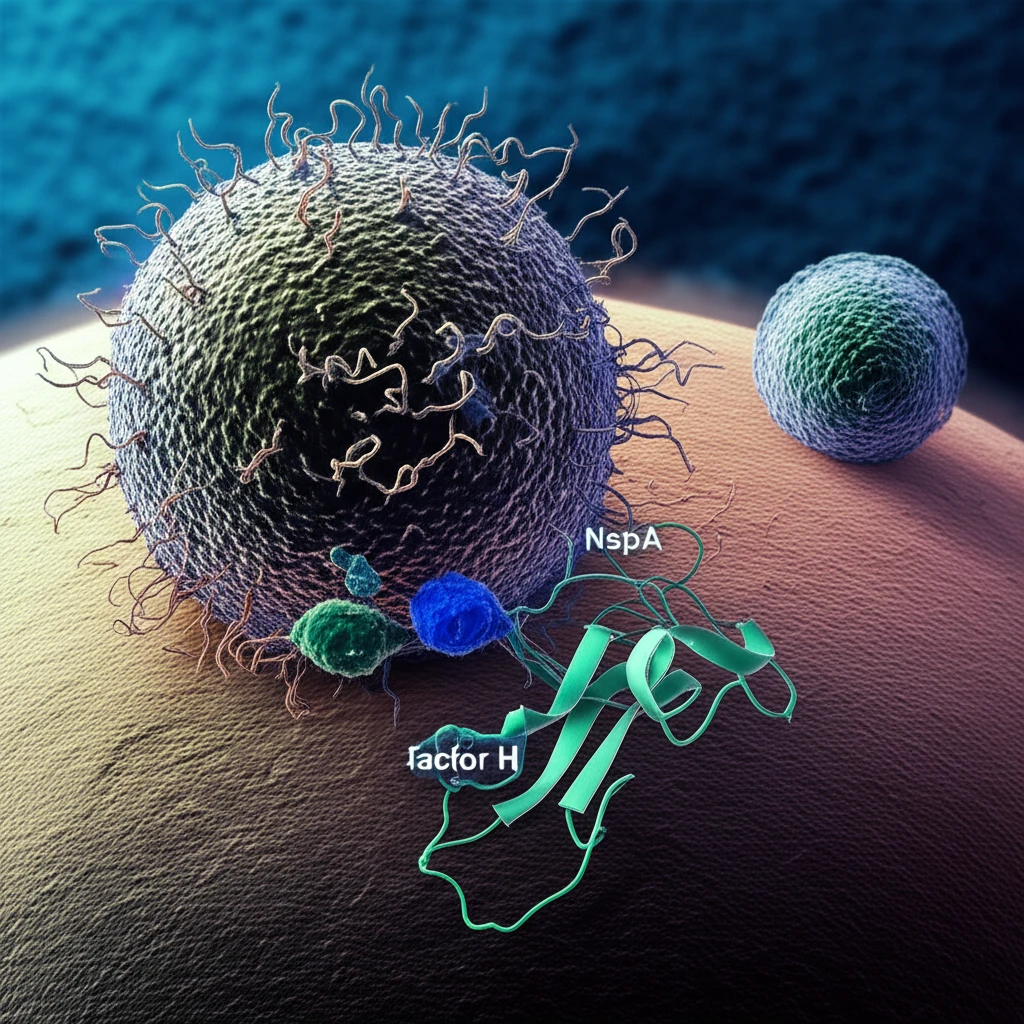
Unlocking the Secrets of Gonorrhea: How a Tiny Protein Could Change Everything
"Groundbreaking research reveals how a protein called NspA helps gonorrhea outsmart the body's defenses, paving the way for new treatments and vaccines."
Gonorrhea, a common sexually transmitted infection (STI), affects millions worldwide each year. While often treatable, the rise of antibiotic-resistant strains poses a significant threat to public health. New research has shed light on how the bacterium causing gonorrhea, Neisseria gonorrhoeae, outmaneuvers our immune defenses, offering crucial insights for developing effective treatments and vaccines.
The study focuses on a specific protein found on the surface of N. gonorrhoeae called Neisserial surface protein A, or NspA. Researchers have discovered that NspA plays a key role in the bacterium's ability to survive in the human body. This protein helps N. gonorrhoeae to essentially 'hide' from the body's immune system, allowing the infection to persist.
This article delves into the intricacies of this research, exploring the ways in which NspA interacts with the human immune system and highlighting the potential for these findings to revolutionize the fight against gonorrhea. We'll examine the science behind this discovery, its implications for future treatments, and how this understanding could help protect us from this concerning global health issue.
How Does NspA Help Gonorrhea Thrive?

The human body has a sophisticated defense system that detects and eliminates pathogens, including bacteria like N. gonorrhoeae. This system relies on various components, one of which is the complement system. This system is designed to recognize and neutralize threats, preventing the infection from spreading. However, N. gonorrhoeae has evolved clever strategies to evade this.
- NspA binds to human factor H (FH).
- This binding helps N. gonorrhoeae evade the complement system.
- The complement system is a key part of the immune response.
- By evading the complement system, the bacteria can persist longer.
The Future of Gonorrhea Treatment and Prevention
The discovery of NspA's critical role in gonorrhea's immune evasion opens up exciting avenues for future research. By understanding the precise interactions between NspA and human proteins like factor H, scientists can design novel therapies. This understanding can improve vaccines that target NspA, potentially preventing infection altogether. It also paves the way for immunotherapies that disrupt NspA's function, rendering the bacteria vulnerable to the immune system. This research offers a critical step forward in addressing the global challenge of antibiotic-resistant gonorrhea, promising a healthier future for many.
